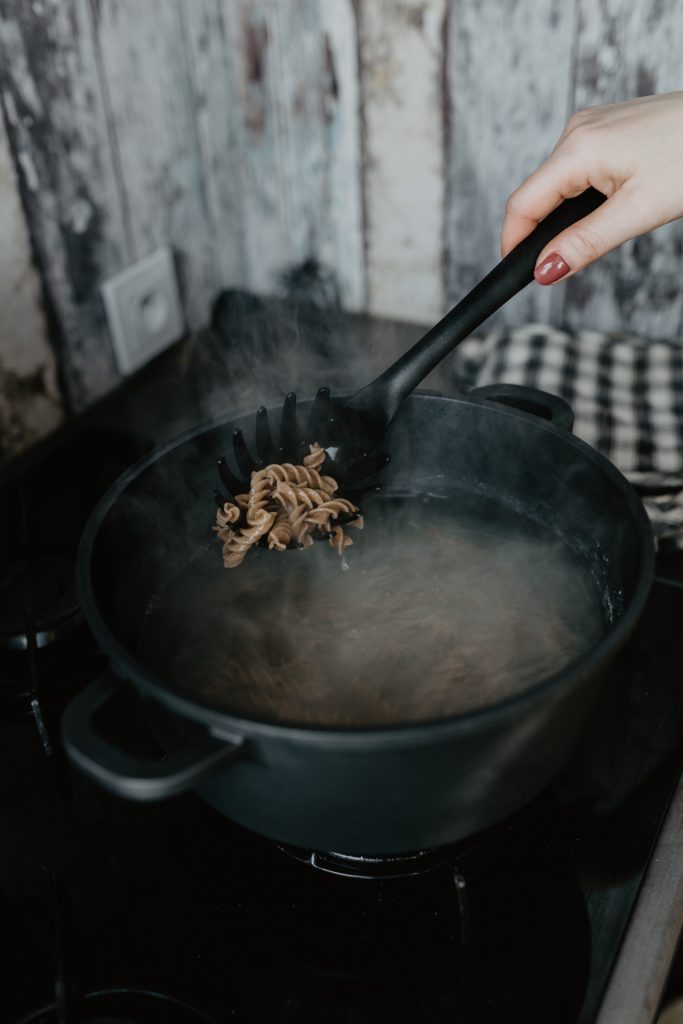Reports on the size of the UK’s collective waistline in June of last year made for stark reading. Accompanied by pictures of the prime minister Boris Johnson working up a sweat, headlines warned that ’’lockdown made Britain’s obesity problem worse’’, with nearly half a million UK adults reporting gaining weight during lockdown.
This was followed by the UK Health Secretary urging overweight people to lose 5 pounds (2 kg) to save the NHS £100 million over the next five years. Small fry, we realise, when compared with the billions of pounds lost over the course of the pandemic, but the point remains; obesity is now a major issue in the UK, and the global pandemic has only served to exacerbate it.
It’s not just the UK. In fact, this is a global problem; the World Obesity Federation have estimated that by 2025, 2.7 billion adults will be overweight or obese globally.
Though there are a surprisingly wide variety of causes, some habitual, some behavioural, some educational and some environmental, the fundamental root of obesity can be defined as an ‘’energy imbalance between calories consumed and calories expended’’.
The World Health Organisation go on to report that this is primarily due to a combination of ‘’increased intake of energy-dense foods that are high in fat and sugars’’ and ‘’an increase in physical inactivity’’. Today, we’re here to consider the former, and what small, sustainable changes you can make to your diet to help you keep your weight at a healthy level.
With that in mind, here are 4 diet adjustments which actually help with weight loss.
SWAP REFINED FOR WHOLEMEAL AND WHOLEGRAIN
One of the most simple adjustments you can make to your diet is to swap out refined grains for wholemeal and whole grains.
The NHS defines a healthy diet as one which includes at least five portions of fruit and vegetables a day, and meals based around higher fibre, starchy foods potatoes, bread, rice or pasta.
A balanced diet, where all food is eaten mindfully and purposefully, manages to get enough vitamins and nutrients using these starchy foods as a vehicle for the healthier elements.
But, generally speaking, the refined versions, such as white bread, white rice and pasta made from refined (wheat) flour, aren’t nearly as healthy as the whole varieties, since they’ve been processed – and in most cases, stripped of their bran and germ.
Doing so rids the grain of nearly all of its fibre, as well as making it less nutritious. Because fibre keeps us feeling satiated for longer, as well as potentially boosting our metabolism, it’s a simple, safe swap to replace ‘white’ foods with their whole version, and is one which could help with weight management.

MAKE YOUR SWEET TREATS COUNT
We all crave a sweet treat once in a while. In fact, avoiding sugar entirely could have a detrimental impact on your health, as you’d be missing out on the vital nutrients, vitamins and minerals found in the healthy, nourishing fruits and vegetables which err on the sweeter side.
Instead, you should be wary of ‘free sugars’; the types that don’t occur naturally in organic food and instead are added to stuff like chocolate, biscuits, cereals, fizzy drinks and more. Sugars found in unsweetened fruit and vegetable juices, as well as smoothies, also count as ‘free sugars’ although they occur naturally.
Confusing, but anyway, the NHS recommends that we should limit our daily consumption of these ‘free sugars’ to 30 grams per day, which is around 7 sugar cubes. Of course, this shouldn’t be a target, but rather, an encouragement to exercise some caution in your consumption. Always scrutinise the labels of ingredients you’re buying to get a clear idea of the sugar intake involved.
LEARN THE FACTS ON FATS
To sustain a healthy diet, it’s important to know something about the nutritional values of food. That said, there’s so much confusion over nutrition, and time and time again the lines are redrawn about what may or not be healthy.
Intelligence regarding fat, particularly, has shapeshifted, with science now recommending doing away with a daily ceiling being put on fat consumption, and instead focusing on replacing ‘bad’ fats with ‘good’ ones – or saturated with unsaturated.
Simple swaps can be made regarding fat which can help you manage your weight. These include:
- Swap whole milk for skimmed
- Prioritise low fat instead of full fat cheese
- Swap butter for low fat spreads or extra virgin olive oil
- Switch the sour cream for low fat creme fraiche
- Use rapeseed oil or extra virgin olive oil for frying, and use a spritzer to control the amount you use
Generally speaking, doctors and nutritionists regard monounsaturated and polyunsaturated fats as being considerably more healthy than the saturated kinds. You’ll find monounsaturated fats in oily fish, walnuts, and some seeds, while polyunsaturated fats are found in nuts and avocados, especially.
SAFE, SUSTAINABLE CALORIE REDUCTION
If you are looking to reduce your calories in a safe, sustainable way, using calorie counting and BMI tracking, then the NHS Weight Loss Plan, which focuses on developing healthy habits and routines, recommends a slow, gradual reduction in calories over the course of 12 weeks as a responsible way to do so.
Developed in association with The British Dietetic Association, and downloaded more than 7 million times, the NHS classifies safe, sustainable weight loss as being between 0.5kg and 1kg per week. The diet plan aims to take a responsible and feasible approach to weight loss – with a reduction in calorie count of just 600 per day under the daily recommended intake of 2’500 for men and 2’000 for women – to 1’900 and 1’500 respectively, for the course of three months. Check out the NHS calorie counting advice for more on this.
One increasingly popular way to do this, in a controlled, bespoke way, is through a course of IF (intermittent fasting).
The two most popular forms of IF are the 5:2 and 16:8 plans. The 5:2 involves a standard calorie intake (using healthy eating principles) for five days of the week, with two days where just 500 or 600 calories are consumed. The 16:8 plan divides the day into two thirds of fasting and one third of regular healthy eating.
Though previously dismissed as a fad diet, there is now increasing evidence to suggest that the 16:8 plan, particularly, can be useful in managing weight. Dr Deborah Wexler, via Harvard Health, suggests that ‘’there is evidence to suggest that the circadian rhythm fasting approach, where meals are restricted to an eight to 10-hour period of the daytime, is effective.’’
That said, caution is recommended; the team at Harvard Health go on to say that ‘’people with advanced diabetes or who are on medications for diabetes, people with a history of eating disorders like anorexia and bulimia, and pregnant or breastfeeding women should not attempt intermittent fasting unless under the close supervision of a physician who can monitor them’’.
Food for thought, indeed.
Of course, none of this should mean you’re denying yourself the pleasures of eating. Check out these 4 IDEAL steps to eating everything in moderation for some tips on doing just that!





